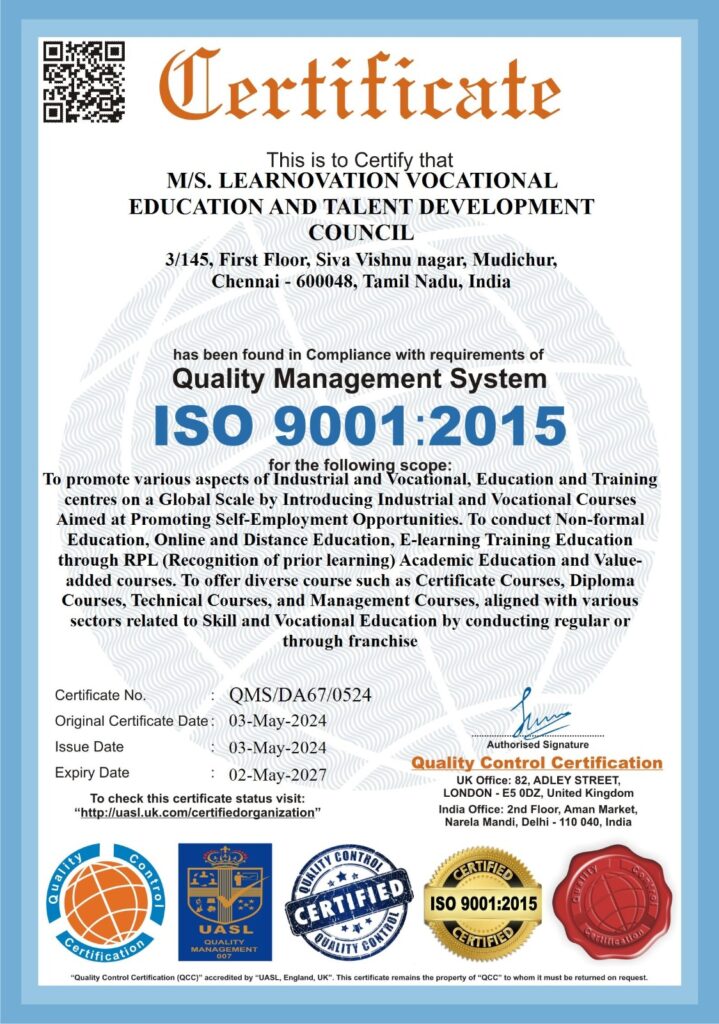The Learnovation Vocational Education Council was established under Article 29 & 30(1) of the Constitution of India and incorporated under the legislation of the Ministry of Corporate Affairs, Government of India. During the British colonial period, the Wood’s Dispatch of 1854 envisioned pre-vocational education. The Indian Education Commission (1882), commonly referred to as the Hunter Commission, also advocated for the inclusion of practical subjects in secondary schools. Mahatma Gandhi, for the first time, emphasized the importance of integrating manual and productive work into education. The Education Commission (1964-66) recommended a 10-year schooling system and the division into two streams – academic and vocational at the higher secondary level.
The National Policy on Education in 1986 further underscored the significance of vocational education, stating that “the introduction of a systematic, well-planned, and rigorously implemented program of vocational education is crucial.” It emphasized the need for vocational education to prepare students for various vocations across different sectors.
Recognizing Vocational Education and Training (VET) as a vital component of the nation’s educational framework, the Government of India acknowledges the urgency to redefine its key elements to ensure flexibility, relevance, inclusivity, and creativity. In response, the government has initiated various measures to enhance VET, consulting with industry stakeholders, academics, civil society, and practitioners. As part of this initiative, the International Council of Vocational Education Research Training in New Delhi has been instrumental in promoting invaluable services to the nation.





